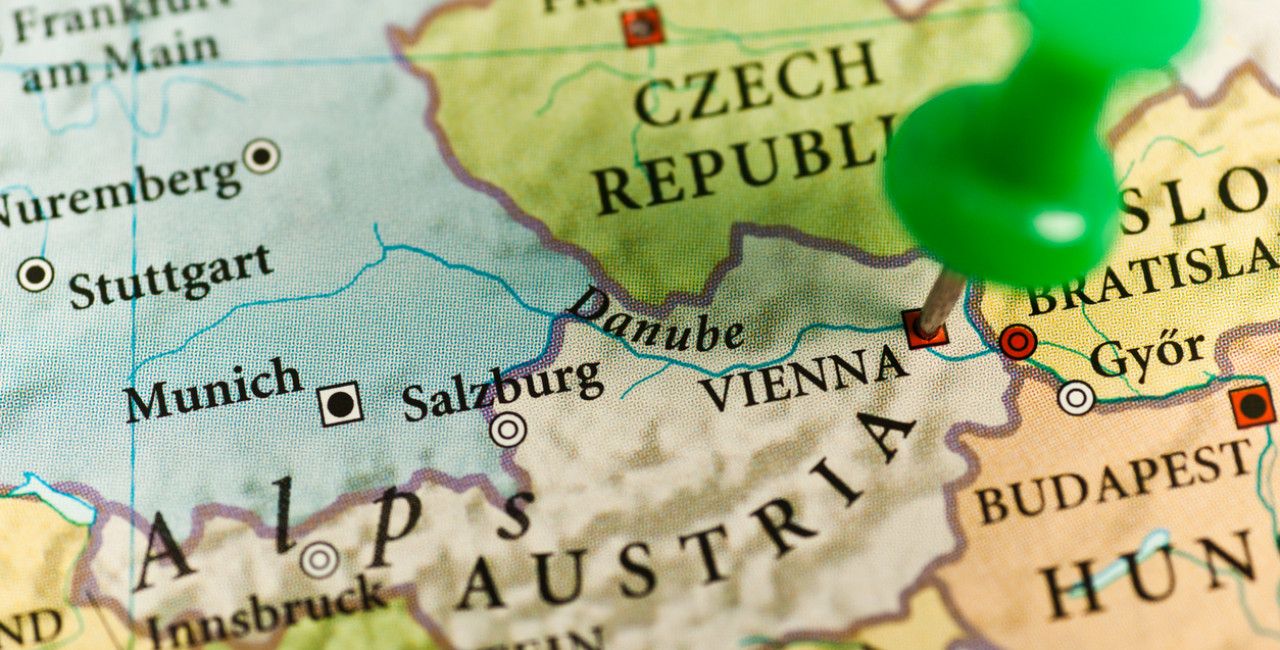MARCH 28, 2022 – Having spent considerable time inside the old Austro-Hungarian Empire, I next aimed for Vienna, capital of that old regime. Two years earlier I’d visited Salzburg, where I hiked in nearby mountains. If Salzburg was Mozart’s hometown and the movie set for The Sound of Music, Vienna was the larger magnet for a crowd of musical “greats” and their wealthy patrons. I needed to touch base—however superficially—with the City of Music and its storied past.
En route, however, the present overshadowed—and underscored—the past and the inexorable connection between history/geography, and the current state of affairs.
To reach Vienna, I took a train from Poprad in the Carpathians to Bratislava on the Danube, 90 minutes upstream from Vienna. What’s now the capital of Slovakia sits on the border with Austria. In 1981, you could stand in Bratislava and peer over the Iron Curtain. For the city’s inhabitants, however, freedom was a million miles away.
This incongruity of proximities was captured in a letter home:
“This morning on the train from Poprad to Bratislava, I was approached by a man about 30 who asked, ‘Do you speak English?’ He was Miloslav, a Slovak who worked as a metallurgist in Bratislava. Some year ago he’d decided to learn English, but his contact with English-speaking ‘strangers’ was very limited. We had a nice long chat, in the course of which I learned a great deal about Slovakian history, geography, and politics. My friend wasn’t at all enchanted by the Russians. ‘Communism,’ he joked, ‘is responsible for our high standard of living.’ Since I had two hours in Bratislava before my train departed for Vienna, Miloslav gave me a short, walking tour of the city. We climbed to the Moravian castle overlooking the Danube and gazed at Hungary to the far east, Austria to the southwest, and Czechoslovakia below. From our vantage point we could see the barbed wire fence dividing freedom and oppression. Miloslav grew rather quiet. ‘There lies freedom,’ he said, pointing to the southwest, ‘and yet if I tried to cross the river I’d be thrown into prison.’ That statement jolted me. In less than 90 minutes, I’d cross that river, and the authorities would merely stamp my passport.”
My rewarding conversation with Miloslav reminded me of an incident that was rooted in history—the amalgamation of peoples under the Austro-Hungarian Empire; the Wilsonian emphasis on self-determination in the 1919 peace negotiations in Paris after WW I; the age-old rivalries and prejudices that persisted during Soviet hegemony over the old empire of the Hapsburgs.
The “incident” occurred at the rail station in Prague (Bohemia, land of Czechs). Pavel and Magda were on hand to see me off to the High Tatras. We had time, so I moved toward a long bench and beckoned my Czech friends to sit with me. Two other travelers were at the far end of the bench, leaving ample space for us.
“No,” Pavel said emphatically.
When I asked why, he said, “They’re Slovaks.”
Twelve years later, Czechoslovakia split accordingly.
(Remember to subscribe to this blog and receive notifications of new posts by email.)
© 2022 by Eric Nilsson
